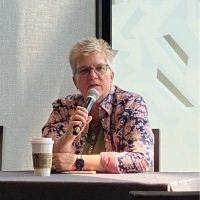Lex Frieden (Convener)
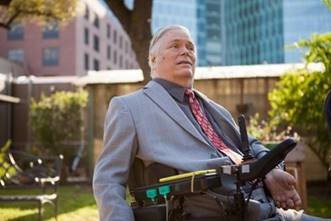 Lex Frieden is Professor of Health Informatics at The University of Texas Health Science Center at Houston (UTHealth) and he is adjunct Professor of Physical Medicine and Rehabilitation at Baylor College of Medicine. Mr. Frieden also directs the ILRU – Independent Living Research Utilization Program at TIRR Memorial Hermann in Houston. ILRU is a research, training and technical assistance program on independent living for people with disabilities and older adults.
Lex Frieden is Professor of Health Informatics at The University of Texas Health Science Center at Houston (UTHealth) and he is adjunct Professor of Physical Medicine and Rehabilitation at Baylor College of Medicine. Mr. Frieden also directs the ILRU – Independent Living Research Utilization Program at TIRR Memorial Hermann in Houston. ILRU is a research, training and technical assistance program on independent living for people with disabilities and older adults.
Mr. Frieden has served as chairperson of the National Council on Disability, president of Rehabilitation International, and chairperson of the American Association of People with Disabilities. He is recognized as one of the founders of the independent living movement by people with disabilities in the early 1970’s, and he was instrumental in conceiving and drafting the Americans with Disabilities Act (ADA) of 1990.
A graduate of Tulsa University, Mr. Frieden has been honored as a Distinguished Alumnus. He holds a master’s degree in social psychology from the University of Houston where he completed doctoral requirements in rehabilitation psychology, and he has been awarded an honorary doctorate in law (LL.D.) by the National University of Ireland. He has been the University of Texas Chancellors Fellow on Disability, and he has received two Presidential Citations for his work in the field of disability. He was awarded the 2017 Fries Prize for Human Improvement.
Much of Frieden’s work has focused on improving employment opportunities for people with disabilities through education, job training, equal opportunity and affirmative action. To honor his work in this area, the Texas Governor’s Committee on Disabilities has named their annual awards program the Lex Frieden Employment Awards. Frieden has tirelessly led efforts to eliminate disincentives to work. He has written numerous reports on the subject and served on many committees and study groups. He was a chief proponent and helped to craft Section 1619 of the Social Security Act as well as the Ticket to Work and Work Incentives Improvement Act of 19
Mr. Frieden is the author of more than 100 published contributions to the literature. He has given more than 1,000 lectures and presentations at events throughout the US and internationally. He is currently leading a national research study to evaluate the impact of the ADA and to identify population group disparities related to employment, transportation, housing and community living.
Julia Bascom | Former Executive Director, Autistic Self Advocacy Network (ASAN)
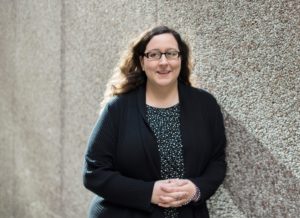 Julia Bascom formerly served as Executive Director at the Autistic Self Advocacy Network. Previously, she did state-level work in her home state of New Hampshire, where she served on the DD council and co-led an inter-agency team to revitalize self-advocacy within the state. Julia edited Loud Hands: Autistic People, Speaking, an anthology of writings by autistic people, and currently serves on the advisory board of Felicity House, and the boards of the Consortium for Citizens with Disabilities, the Institute for Exceptional Care, and Allies For Independence.
Julia Bascom formerly served as Executive Director at the Autistic Self Advocacy Network. Previously, she did state-level work in her home state of New Hampshire, where she served on the DD council and co-led an inter-agency team to revitalize self-advocacy within the state. Julia edited Loud Hands: Autistic People, Speaking, an anthology of writings by autistic people, and currently serves on the advisory board of Felicity House, and the boards of the Consortium for Citizens with Disabilities, the Institute for Exceptional Care, and Allies For Independence.
Laurin Bixby, PhD | Research Scientist, Lurie Institute for Disability Policy, Brandeis University

Dr. Laurin Bixby is a Research Scientist at the Lurie Institute for Disability Policy at Brandeis University. She leads quantitative research on Medicaid Home and Community Based Services, self-direction, family caregiving, and health and economic inequities among people with disabilities and older adults. Her work actively challenges how structural ableism harms disabled people within systems such as healthcare, long-term services and supports, and the carceral system. Through her research and advocacy efforts, she aims to inform policy and drive structural changes that advance Disability Justice. Dr. Bixby earned a PhD in sociology and a master’s in statistics from the University of Pennsylvania and held notable fellowships from the Robert Wood Johnson Foundation (Health Policy Research Scholars), Mathematica Policy Research (Summer Fellow), Leonard Davis Institute for Health Economics (Associate Fellow), and Elevance Health (Lex Frieden Disability Policy and Advocacy intern).
Kathy Brill, MEd, MPS | Principal, Brill Consulting, LLC
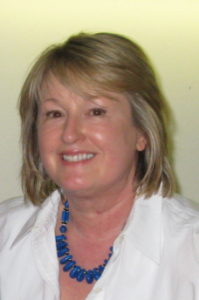
Kathy Brill is the Principle of Brill Consulting. An expert in her field, Kathy is mom to three daughters.. Her youngest, Alexa, age 23, was born three months premature and uses numerous personal and assistive technology supports to assist her in being successfully and fully included in all aspects of her home, school, and community. Kathy has served as the Exeutie Director of Parent to Parent US as well as acting as director of Parent to Parent of PA for seven years, hosting the International Parent to Parent Conference in 2002. She currently serves on the National Advisory Board on Improving Health Care Services for Seniors and People with Disabilities. She previously served as Chair of PA’s State Interagency Coordinating Council for three years, President of PA TASH, and Secretary of NConSD (National Coalition on Self-Determination.) She was also a trainer for Natural Allies in Pennsylvania, an effort to build collaborative partnerships between higher education in early childhood and parents who are raising children with disabilities and special health care needs. Kathy received the National Council on Disability 2006 Leadership Award in appreciation of outstanding contributions to the improvement of disability policy in the US.
Charles Christiansen, Ed.D. | Former Executive Director, American Occupational Therapy Foundation | Clinical Professor, the University of Texas Medical Branch at Galveston
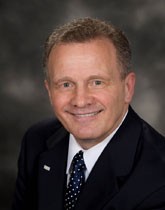
Dr. Charles Christiansen assumed duties as Executive Director of the Foundation in March 2008. Prior to that, he served as Vice Provost for Health Sciences at the University of Minnesota Rochester and Founding Director, Center for Allied Health Programs. From 1993-2006, Dr. Christiansen served as Dean and George T. Bryan Distinguished Professor at the University of Texas Medical Branch and earlier as Professor and Director, School of Rehabilitation Sciences at The University of British Columbia. His academic career has spanned over three decades.
Dr. Christiansen earned his doctorate in educational administration at The University of Houston and completed a post-doctoral residency through Baylor College of Medicine in Houston, Texas. He holds degrees in Counseling Psychology and Occupational Therapy, respectively and has published numerous scientific books, chapters and papers. Dr. Christiansen was named a distinguished alumnus of the University of North Dakota during its Centennial celebrations and has held adjunct professorships at various universities in this country and abroad. He is a fellow of the American Occupational Therapy Association and has served on the boards of several professional organizations.
Yanira L. Cruz, Ph.D. | President and CEO, National Hispanic Council on Aging (NHCOA)
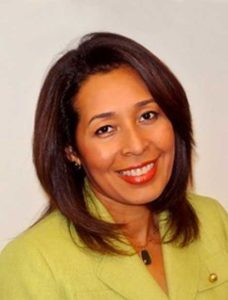
Dr. Yanira L. Cruz, serves as President and Chief Executive Officer of the National Hispanic Council on Aging (NHCOA). Dr. Cruz focuses on improving the quality of life for Hispanic older adults their families and communities through public policy, educational efforts, community-based interventions, capacity building and technical assistance. Dr. Cruz served as Executive Director and Chief Operating Officer of the Hispanic-Serving Health Professions Schools (HSHPS) in Washington. She served as Director of the Institute for Hispanic Health at the National Council of La Raza (NCLR) where she led numerous public health programs to improve the health status of Latinos nationwide. She has been Member of National Advisory Board since October 13, 2008. She also serves on the Boards of the Latin American Youth Center (LAYC) and the American Diabetes Association (ADA). Dr. Cruz serves on the Advisory Panel on Medicare Education (APME), which advises the Secretary of DHHS and the Administrator of CMS on opportunities to enhance the federal government’s effectiveness in implementing a national Medicare education program. Dr. Cruz also holds an adjunct faculty appointment at The George Washington University School of Public Health.
Berthy de La Rosa-Aponte, MA | Former Member, President’s Committee for People with Intellectual Disabilities | Former Chair, U.S. Ticket to Work and Work Incentives Advisory Panel
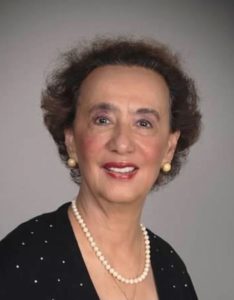 Berthy De La Rosa-Aponte has been a disability advocate for over 30 years. Her professional experiences has centered on administering services and programs to the disability and/or the Hispanic communities in the US in the educational and social service fields. Mrs. De La Rosa-Aponte has served in numerous local, state and national boards including gubernatorial, congressional and presidential appointments. In 2003 the Speaker of the U.S. House of Representatives appointed her to be a member of the Ticket to Work and Work Incentives Advisory Panel. In 2004 President George W. Bush appointed Mrs. De La Rosa-Aponte to be the Chair of the national Ticket to Work and Work Incentives Advisory Panel. Mrs. De La Rosa-Aponte was recently appointed by President Bush to a two-year term beginning May 12, 2008, as a Member of the President’s Committee for People with Intellectual Disabilities.
Berthy De La Rosa-Aponte has been a disability advocate for over 30 years. Her professional experiences has centered on administering services and programs to the disability and/or the Hispanic communities in the US in the educational and social service fields. Mrs. De La Rosa-Aponte has served in numerous local, state and national boards including gubernatorial, congressional and presidential appointments. In 2003 the Speaker of the U.S. House of Representatives appointed her to be a member of the Ticket to Work and Work Incentives Advisory Panel. In 2004 President George W. Bush appointed Mrs. De La Rosa-Aponte to be the Chair of the national Ticket to Work and Work Incentives Advisory Panel. Mrs. De La Rosa-Aponte was recently appointed by President Bush to a two-year term beginning May 12, 2008, as a Member of the President’s Committee for People with Intellectual Disabilities.
Sita Diehl | Director, Public Policy and Advocacy, National Alliance on Mental Illness (NAMI) Wisconsin
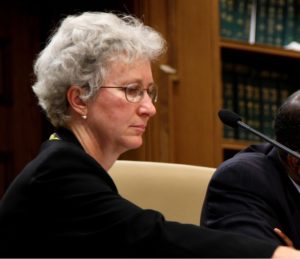
Sita Diehl is former director of State Policy and Advocacy for the National Alliance on Mental Illness (NAMI) and is a member of the National Advisory Board. NAMI is the nation’s largest grassroots mental health organization dedicated to building better lives for the millions of Americans affected by mental health and substance use conditions. Among other critical issues, NAMI advocates for full health insurance parity between mental health and other types of medical care.
Kathy Greenlee | President and CEO Greenlee Global and Senior Director, Advancing States
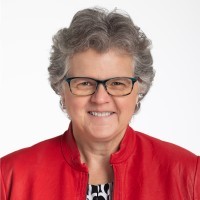
Kathy Greenlee is a visionary thought leader, policy expert, and advocate with 20+ years of executive experience in health and human services at the international, national, and state level. She is committed to public service, with a deep passion for upholding the dignity and independence of older adults and people of all ages with disabilities.
Jae Kennedy | Professor, Elson S Floyd College of Medicine, Washington State University

Jae Kennedy (PI) chairs the Department of Health Policy and Administration at Washington State University. He began studying disability policy at the World Institute on Disability(WID) in 1989, and completed his doctorate in Health Services and Policy Analysis at UC Berkeley in 1996. His research focuses on understanding the health and employment disparities experienced by people with chronic illness and disability, and on developing effective programs and policies to lessen those disparities. He has published over 50 peer-reviewed journal articles, and received the Switzer Distinguished Research Fellowship from the National Institute on Disability and Rehabilitation Research in 2000.
Leonard Kirschner, MD, MPH | Member, Arizona State Medicaid Advisory Committee | Former Director, Arizona Health Care Cost Containment System (1987-1993)
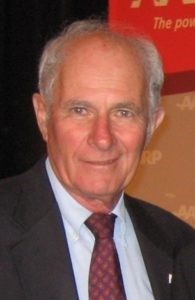 Dr. Leonard Kirschner, MD retired as a Principal with William M. Mercer Inc., a global consulting firm, in 2001. During his tenure with the company, he provided consulting services to such diverse Medicaid programs as TennCare, MediCal and AHCCCS. Dr. Kirschner was Vice President, Health Care Initiatives, State Health Care, EDS, 1993 to 1999. During his 6 years with EDS, he provided consulting services to Medicaid programs across the United States, including business trips to all 50 states.
Dr. Leonard Kirschner, MD retired as a Principal with William M. Mercer Inc., a global consulting firm, in 2001. During his tenure with the company, he provided consulting services to such diverse Medicaid programs as TennCare, MediCal and AHCCCS. Dr. Kirschner was Vice President, Health Care Initiatives, State Health Care, EDS, 1993 to 1999. During his 6 years with EDS, he provided consulting services to Medicaid programs across the United States, including business trips to all 50 states.
Dr. Kirschner was Director of the Arizona Health Care Cost Containment System (AHCCCS) from February, 1987 until July, 1993. This program provides health care to over 1 million residents of the state. The prepaid model pioneered by Arizona is considered to be the most cost effective means of providing quality health care to Medicaid beneficiaries. During his 6 years as AHCCCS Director, he represented the western states and Pacific territories on the Executive Committee of the State Medicaid Directors Association and chaired the Medicaid Managed Care Technical Advisory Group.
Dr. Kirschner is a graduate of Williams College, Albany Medical College, and the Harvard University School of Public Health. He is board certified by the American Board of Preventive Medicine and is a Fellow of the American College of Preventive Medicine and the Aerospace Medical Association.
Dr. Kirschner served on active duty in the United States Air Force for 22 years commanding five Air Force hospitals before retiring in 1985 as Commanding Officer of the USAF Hospital, Luke Air Force Base with the rank of Colonel. He spent ten years at military medical facilities outside the United States, including assignments in Turkey, Japan, Vietnam, Thailand and Spain, and served four years as Director, Cadet Health Services at the USAF Academy. His military awards include the Legion of Merit, Bronze Star, Air Medal and Vietnam Service. During the past 40 years, he has been an invited speaker at conferences across the country.
Sandy Markwood | CEO, USAging
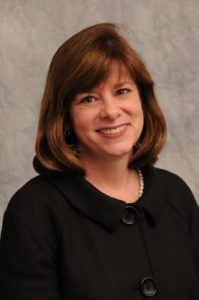
Chief Executive Officer Sandy Markwood has more than 30 years’ experience in the development and delivery of aging, health, human services, housing and transportation programs in counties and cities across the nation. Prior to coming to n4a in January 2002, Sandy served as the Deputy Director of County Services at the National Association of Counties where she took a lead role in research, training, conference planning, program development, technical assistance and grants management.
As CEO, Sandy is responsible for n4a’s overall management. She sets strategic direction for the staff, oversees the implementation of all policy, grassroots advocacy, membership and program initiatives. She also leads USAging’s fundraising efforts and engages corporate sponsors to support critical initiatives, including an aging awards/best practices program and the Leadership Institute for Area Agency on Aging staff. Externally, Sandy forms strategic partnerships with federal agencies and organizations in aging, human services and health care arenas to enhance the role and recognition of Area Agencies on Aging and Title VI programs.
Sandy holds Bachelor’s and Master’s degrees from the University of Virginia.
Katy Neas | CEO, The Arc of the United States
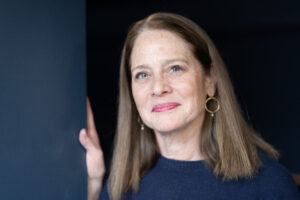 Katherine (Katy) Neas is the CEO of The Arc of the United States, the largest national community-based organization advocating for and serving people with intellectual and developmental disabilities and their families. She leads The Arc’s Washington, DC-based national office and network of nearly 600 state and local chapters, which provide direct support and advocacy to more than a million people with IDD across the United States.
Katherine (Katy) Neas is the CEO of The Arc of the United States, the largest national community-based organization advocating for and serving people with intellectual and developmental disabilities and their families. She leads The Arc’s Washington, DC-based national office and network of nearly 600 state and local chapters, which provide direct support and advocacy to more than a million people with IDD across the United States.
Katy has a deep commitment to advancing the rights and opportunities of people with disabilities, exemplified by her 35-year career spanning government, nonprofit, and association sectors. Prior to joining The Arc, Katy was appointed by President Joe Biden to serve as the Deputy Assistant Secretary and Acting Assistant Secretary in the Office of Special Education and Rehabilitative Services at the U.S. Department of Education.
In 2024, Katy was named one of Forbes Magazine’s 50 women over 50 who are making an impact. She is a graduate of Georgetown University, a mother, wife and native of Des Moines, Iowa.
Cynthia Overton, PhD | Director of Tech Workplace Initiatives, The Kapor Center
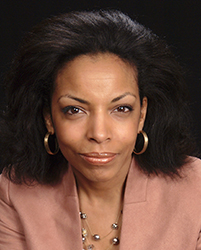
Cynthia Overton recently joined the Kapor Center as the Director of Tech Workplace Initiatives. She comes to us with years more than a decade of experience in the professional services industry, where she led research, technical assistance, and knowledge translation issues to enhance opportunities for underrepresented populations.
Previously Dr. Overton served as a principal researcher with AIR. Dr. Overton currently serves as co-project director for the Model Systems Knowledge Translation Center, a national center funded by the U.S. Department of Education (ED), National Institute on Disability and Rehabilitation Research, which helps facilitate the knowledge translation process to make research meaningful to those with spinal cord injury, traumatic brain injury, and burn injury. She also leads dissemination efforts for the Center for Technology Implementation, a national center funded by ED’s Office of Special Education Programs, charged with developing, field testing, and disseminating technology implementation resources to improve education outcomes for all students, including those with disabilities.
As a person with a disability who is committed to diversity and inclusion in the workplace, her main priority is working with Diversity Advocates. This is a group of more than 900 tech industry professionals who champion for workplace inclusion. With enthusiastic DA members from rapidly growing startups, she is building a platform to share effective tools and resources, answer sensitive questions and develop a state of the art platform to fuel a sophisticated peer learning community.
Dr. Overton has extensive professional training. She completed the Education Policy Fellowship Program sponsored by the Institute for Educational Leadership; participated in the United States Marines Educators Training Workshop in Parris Island, South Carolina; earned teaching credentials (K-5 self-contained and K-8 English) from Eastern Michigan University; and received an assistive technology applications certificate from California State University, Northridge Center on Disabilities.
Carolyn P. Phillips, M.Ed., CPACC | Director of the Center for Inclusive Design and Innovation (CIDI) Education at Georgia Tech | Director & Principal Investigator of Tools for Life, Georgia’s Assistive Technology (AT) Act Program
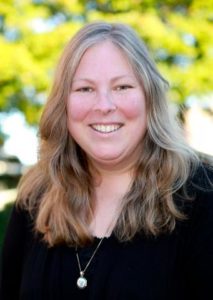
Carolyn P. Phillips is internationally recognized in the fields of assistive technology, inclusive design, accessibility and disabilities. Carolyn serves as Director of the Center for Inclusive Design and Innovation (CIDI) Education at Georgia Tech and Director & Principal Investigator of Tools for Life, Georgia’s Assistive Technology (AT) Act Program.
As a person living with specific Learning Disabilities, Carolyn has dedicated her time and energy to promoting independence of all people, including those with disabilities through research, policy, service delivery, advocacy, education, assistive technology and systems change. She received her undergraduate degree from the University of Georgia, her Master’s Degree from the University of Kentucky and is currently pursuing her PhD at Texas Tech University.
Michelle Putnam, PhD | Professor, Simmons College School of Social Work
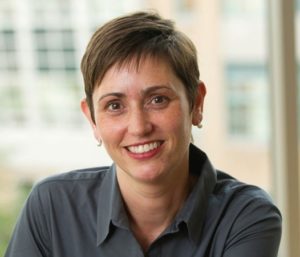 Dr. Putnam’s research focuses on the intersections of aging and disability, with particular emphasis on understanding how public programs and public policy meets the needs of persons aging with disability. Within this area, her work examines collaborations between aging and disability service providers and their capacity to serve the aging with disability population, long-term care and support needs of persons aging with disabilities, the role of activity portfolios in fostering well-being among older adults, and the relationship of asset accumulation in fostering financial security and independent living among older adults and persons aging with disability.
Dr. Putnam’s research focuses on the intersections of aging and disability, with particular emphasis on understanding how public programs and public policy meets the needs of persons aging with disability. Within this area, her work examines collaborations between aging and disability service providers and their capacity to serve the aging with disability population, long-term care and support needs of persons aging with disabilities, the role of activity portfolios in fostering well-being among older adults, and the relationship of asset accumulation in fostering financial security and independent living among older adults and persons aging with disability.
Dr. Putnam’s scholarship is both independent and done in collaboration with colleagues across institutions and disciplines, and when possible with direct stakeholders. Funders of Dr. Putnam’s research and/or research collaborations include the John A. Hartford Foundation, the AARP Foundation, National Institute of Aging, and the Productive Living Board of St. Louis County. She is frequently engaged to speak about aging with disability and public policy to research, practice, and policy audiences.
In addition to her research, Dr. Putnam actively participates at the national and international level in building bridges across the aging and disability fields of policy and practice. Most recently she is serving on the expert panel that drafted the Toronto declaration on bridging knowledge, policy and practice in aging and disability, a product of the 2011 Growing Older with Disability meeting at the Festival of International Conferences on Caregiving, Disability, Aging, and Technology held in Toronto, Canada. With the help of March of Dimes Canada, she coordinated a supplement issue of the International Journal of Integrated Care about bridging aging and disability and the rationale or and need for the Toronto Declaration. Dr. Putnam continues to coordinate the activities of that expert panel as they develop the entity, Bridging Aging and Disability International Network, to facilitate knowledge development, transfer, and translation between the fields of aging and disability. She was recently appointed as Editor of the Journal of Gerontological Social Work.
Dr. Putnam is one of the few scholars in the field of social work studying aging with disability and is recognized for her leadership in this area. She has actively worked to build awareness of the distinctions between aging with long-term disability and incurring disability for the first time in later life as it relates to provision of supports and services and the overall experience of aging. Her work is both theoretical and empirical, but always related to public policy and the practical aspects of making aging and disability policies and programs work well for people aging with disabilities and their families. Dr. Putnam’s current interest in capacity building within aging and disability service networks directly stems from her prior work. She believes that building capacity to meet unique needs of aging with disability populations has potential to compliment and move current discussions focused on institutional systems change to also include discourse what individuals and their families need to live independently, engage in their community, and experience positive aging.
Mary Sowers | Executive Director, National Association of State Directors of Developmental Disabilities Services (NASDDDS)
Mary Sowers is the Executive Director of the NASDDDS. Mary has been working at NASDDDS since 2014 as the Director of Special Projects. Mary has worked at both the state and federal levels. Mary led Maryland’s efforts around home and community-based services for individuals with I/DD in the early 2000s, and later served in multiple leadership roles within the Disabled and Elderly Health Programs Group within the Centers for Medicare & Medicaid Services, focusing on Medicaid long-term services and supports. Immediately preceding her time at NASDDDS, Mary provided consultation to state governments on many aspects of LTSS through her work with Mercer Government Human Services Consulting.
Since joining NASDDDS in 2014, Mary has worked to provide technical assistance to many state members on their systems of support for individuals with I/DD. She also continues long-standing partnerships with Federal agencies, providing input on and suggestions for national policy strategies to further opportunities for individuals with I/DD to live and thrive in their homes and communities. Mary also has had the opportunity to regularly work closely with a number of key research and policy partners on projects essential to the field of I/DD nationally.
Sherrill Wayland MSW | Senior Director of Special Initiatives and Partnerships, SAGE
Sherrill Wayland, SAGE – Senior Director Senior of Special Initiatives and Partnerships, serves as a trusted thought partner to National Impact and Engagement team and directs the National Resource Center on LGBTQ Aging and serves as SAGE lead for the Long-Term Care Equality Index (in partnership with the Human Rights Campaign Foundation). Sherrill began work with SAGE at the local level in 2008, founding the SAGE Affiliate in St. Louis, MO (now Missourians Aging with Pride). Sherrill earned a Master of Social Work degree from the Brown School of Social Work, Washington University in St. Louis, and has 30 years of professional experience in the fields of education, disability, and LGBTQ+ older adult advocacy.
Guiying (Angel) Zhong | Research Associate, University of Michigan Institute for Social Research | Ambassador, Public Health Communications Collaborative

Guiying (Angel) Zhong (she/they) is a youth mental health advocate and scholar-activist. Situated at the intersection of research and public impact, her work seeks to empower historically marginalized communities, build capacity for culturally responsive research and care, and advance intergenerational wellness and resilience. Since graduating with majors in Psychology and English and minors in Writing and Ethnic Studies from the University of the Pacific, they have served as a Research Analyst at the UW-Madison Center for Health Disparities Research, working on an NIH-funded study examining the impact of where people live on their brain health across the lifespan. They are an alumnus of the NationSwell Fellows Program for young social impact leaders and past NAMI NextGen Youth Advisor, an inaugural Mental Health Policy Fellow with Inseparable, and Board member of Youth MOVE National. Angel is currently a Junior Professional Researcher at the University of Michigan’s Institute for Social Research, where she is aiding with Promoting Community Conversations About Research for Effective Solutions (PC CARES), a project focused on developing culturally-tailored community health education programs that address suicide prevention and at-risk substance use.


